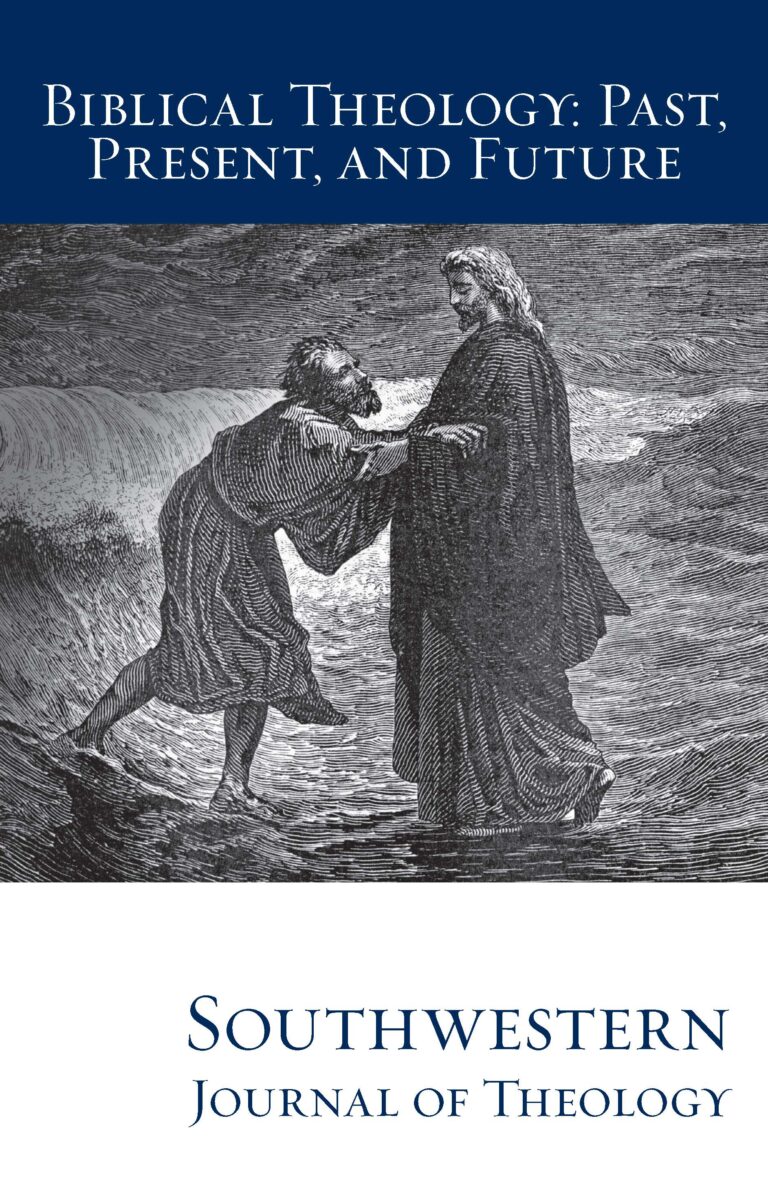
Biblical Theology: Past, Present, and Future (II)
Southwestern Journal of Theology
Volume 56, No. 1 – Fall 2013
Managing Editor: Terry L. Wilder
By Richard Bauckham. Waco, TX: Baylor University Press, 2010. 226 pages. Softcover, $24.95.
In this brief work, Bauckham, well-known professor of New Testament studies, addresses the question of the relationship between human beings and the rest of creation. He begins the work with the concept of the dominion of mankind in the creation account. This foundation leads to a multitude of issues which Bauckham introduces in four respective chapters throughout the remainder of the book. Underpinning the entire work is Bauckham’s belief that the relationship of humans to other creatures, including both animate and inanimate, is more complex than the traditional concept of stewardship or dominion. The relationship, which Bauckham calls the community of creation, involves interconnectedness and interdependence of all living things instead of the idea that the non-human creation was created for the sake of humans, an idea not even present in the creation account.
Admitting the wide influence that the concept of stewardship has had upon Christian living, Bauckham notes several limitations of stewardship as a controlling model for understanding the relationship: it elicits an unwarranted hubris of humanity; it excludes, or at least minimizes, God’s activity in the world; it lacks specific content; it sets humans over creation instead of within it; and it tends to isolate Gen 1:26 and 28 from the rest of Scripture (2–12). After an analysis of Genesis 1, he concludes that the text speaks to humanity’s solidarity with all creation. Mankind, made in the image of God, is to exercise responsible care of creation, ruling not in a role that sets him over creation, but within the order and according to the example that God has set forth—one of kindness, compassion, and preservation.
In chapters two through five, Bauckham expands upon the synthesis that he offers in the first chapter. Using Job 38–39, and expanding upon the mandate of dominion found in Genesis 1, he argues that God desires that humans possess a cosmic humility. The relevance of the subtitle of the work comes out especially in chapter three. Writing, “This is a theocentric, not an anthropocentric world” (79), Bauckham argues from Psalms 104, 148, and Matt 6:25–33 that instead of setting humans apart from creation, the concept of dominion should take place in a community as humans relate to other fellow creatures in a reciprocal manner. In addition to those passages in the Old Testament that speak the praise of all creation, Bauckham sees the aspects of community in various texts which speak to the mourning and lamentation of the non-human creation. In chapter four, Bauckham examines the concept of wilderness, arguing that the distinction between wilderness and orchard in Scripture speaks “to the historical disruption between humans and wild nature” (115). Bauckham, in the final chapter, argues that the foundation that is set in the Old Testament is assumed going into the New Testament and that the New Testament often uses comprehensive language to include all creatures as a part of God’s redemption which accomplishes “not the replacement but the renewal of creation” (150).
This volume is a valuable contribution toward a proper understanding of what the Bible says about the non-human creation. Bauckham succeeds in showing that the Bible is about more than simply the relationship between humans and God. He should be commended in allowing the Scripture to drive his argument and in avoiding the current ecological crisis. He notes, however, that the recent interest of society in the relationship between humans and nature provides the context for reading “with our eyes retrained to see that the Bible also takes our relationship to the non-human creation with absolute seriousness” (146). Toward the end of the book, Bauckham probably oversimplifies the reason behind the modern Christian belief that the Bible is concerned with salvation history rather than creation theology. It can be argued that, in addition to “the technological project of domination” (150), the emphasis on individual salvation since the period of the Reformation has also played a major impact. Some readers may be uncomfortable with Bauckham’s acquiescence regarding an old earth and his high view of science. The reader may also feel at times that Bauckham is not going far enough in the way of applying what he says to Christian living. What he makes clear, however, is that there is much more work to be done in the area of the Bible and ecology. Bauckham’s most important contribution is that he raises numerous possible implications that a proper understanding of creation has upon systematic formulations of the doctrine of creation, the holistic nature of redemption, Christology (especially regarding the role of the cross), and the eschatological topics of the kingdom of God and the eternal state.





